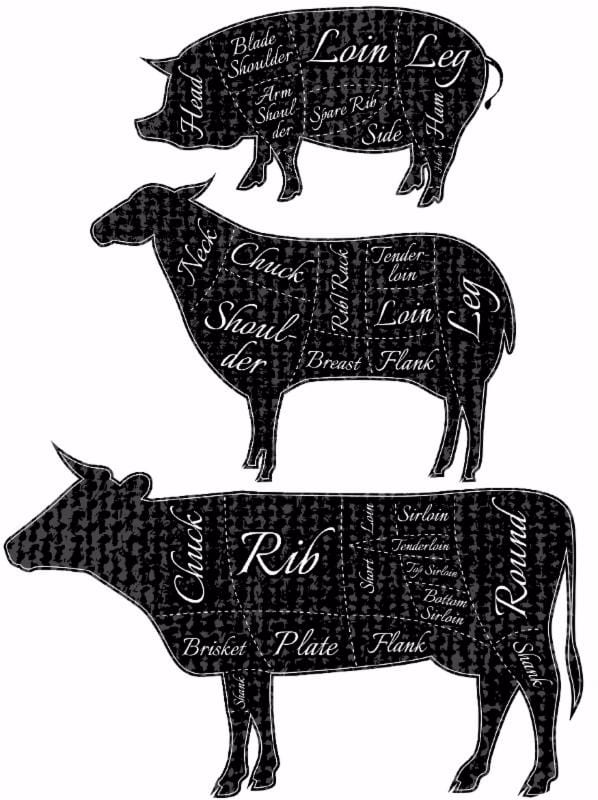FOR IMMEDIATE RELEASE

FALLS CHURCH, VA—JULY 12, 2017—On May 25, Representatives Thomas Massie (R-KY) and Chellie Pingree (D-ME) in the U.S. House of Representatives and Senator Angus King (I-ME) and Rand Paul (R-KY) reintroduced the Processing Revival and Intrastate Meat Exemption Act (H.R. 2657 and S. 1232) also known as the PRIME Act. The legislation would return power to the states to determine appropriate regulations on meat processing for local sales. The bills have been referred to the House Subcommittee on Livestock and Foreign Agriculture and the Senate Committee on Agriculture, Nutrition, and Forestry, respectively.
The PRIME Act would give states the option of passing laws to allow the sale of custom-slaughtered and -processed meat in intrastate commerce direct to the consumer as well as to venues such as restaurants, hotels, or grocery stores. This would include the sale of popular value-added products such as jerky, bone broth, and pot pies. Interstate sales would not be allowed.
Currently federal law prohibits the sale of custom-processed meat; the meat from a custom facility can only go to the individual or individuals who own the animal at the time slaughter takes place, meaning the customer(s) must buy the whole animal while it is still alive, a requirement costing farmers a substantial amount of business. Many potential customers either don’t have the money to buy a whole animal or the freezer space to store it.
Farmers who sell meat by the cut must use a slaughterhouse that has an inspector on-site during the actual slaughtering; in many areas of the country, this means hauling the animals several hours to a distant facility, increasing expenses for the farmer and creating greater stress on the animals. There are places in the U.S. where the farmer has to book a year in advance with the slaughterhouse under inspection for the slaughtering of his or her livestock.
The number of slaughterhouses in the U.S. has declined drastically since the passage of the Wholesome Meat Act of 1967, legislation giving the federal government jurisdiction over meat processing and sales in intrastate commerce. At the time the act passed, there were nearly 10,000 slaughterhouses in the country; as of January 1, 2017, there were 2,732 according to the latest USDA statistics.1
Farm-to-Consumer Legal Defense Fund (FTCLDF) President Elizabeth Rich explained, “Demand for locally produced beef outstrips production in the U.S., in part, because of the lack of access to inspected slaughterhouses. The Wholesome Meat Act of 1967 was sold to the public as a consumer protection bill, but it has wound up being an industry consolidation measure. Currently, only four companies control over 80% of the beef processing in this country; four companies control over 60% of pork processing.”
Inspected slaughterhouses are stretched beyond capacity, and the number of recalls has increased in recent years leading to significant food safety concerns. In 2009, there were 69 recalls of meat and poultry products in the U.S. involving the recall of 9,488,664 pounds.2 In 2015 there were 150 recalls with 21,404,848 pounds recalled,3 and in 2016 there were 122 recalls with 58,140,787 pounds recalled.4 Most alarmingly, a staggering 47,398,141 pounds of the product recalled in 2016 was because of contamination with listeria monocytogenes,5 by far the most deadly pathogen that USDA keeps recall records on.
Custom slaughterhouses are generally small facilities where often only a few animals are slaughtered and processed each day; contrast this with the USDA plants where up to 300-400 cattle are slaughtered per hour. The custom houses, even without an inspector on-site, have a much better track record for food safety.
The Wholesome Meat Act of 1967 has led to the formation of a monopoly in the meat industry, a loss of consumer choice, a decline in the ability of small sustainable farms to meet demand, and a deterioration in food safety and quality. Fifty years is enough. The passage of the PRIME Act is needed more than ever.
The PRIME Act was originally introduced in 2015. H.R. 2657 currently has 19 co-sponsors; the only sponsors for S. 1232 so far are senators Paul and King. Attorneys for the FTCLDF worked on the bill with Representative Massie’s staff.
Please support this important bill. FTCLDF will be sending out action alerts on the PRIME Act in the near future (sign up for action alerts and the twice-monthly News Digest here).
Media Contact:
Elizabeth Rich, Esq.
Farm-to-Consumer Legal Defense Fund
703-208-3276, [email protected]
Footnotes:
1 United States Department of Agriculture, National Agricultural Statistics Service. Livestock Slaughter 2017 Summary. April 2017. p. 62. Posted at http://usda.mannlib.cornell.edu/usda/current/LiveSlauSu/LiveSlauSu-04-19-2017.pdf
2 United States Department of Agriculture, Food Safety Inspection Service. Recall Summaries 2009. Posted at https://www.fsis.usda.gov/wps/portal/fsis/topics/recalls-and-public-health-alerts/recall-summaries/recall-summaries-2009
3 United States Department of Agriculture, Food Safety Inspection Service. Recall Summaries 2015. Posted at https://www.fsis.usda.gov/wps/portal/fsis/topics/recalls-and-public-health-alerts/recall-summaries/recall-summaries-2015
4 United States Department of Agriculture, Food Safety Inspection Service. Recall Summaries 2016. Posted at https://www.fsis.usda.gov/wps/portal/fsis/topics/recalls-and-public-health-alerts/recall-summaries/recall-summaries-2016
5 Ibid.
YOUR FUND AT WORK
 Services provided by FTCLDF go beyond legal representation for members in court cases.
Services provided by FTCLDF go beyond legal representation for members in court cases.
Educational and policy work also provide an avenue for FTCLDF to build grassroots activism to create the most favorable regulatory climate possible. In addition to advising on bill language, FTCLDF supports favorable legislation via action alerts, social media outreach, and the online petition service.
You can help FTCLDF by becoming a member or donating today.

 Anyone wanting to make a contribution to support the work of FTCLDF can make a donation online or send a check to:
Anyone wanting to make a contribution to support the work of FTCLDF can make a donation online or send a check to:
FTCLDF
8116 Arlington Blvd, # 263
Falls Church, VA 22042
Prefer to make a tax-deductible donation? Donate online here.
You may also contact us by email at [email protected] or call 703-208-FARM (3276). Thanks for your support.